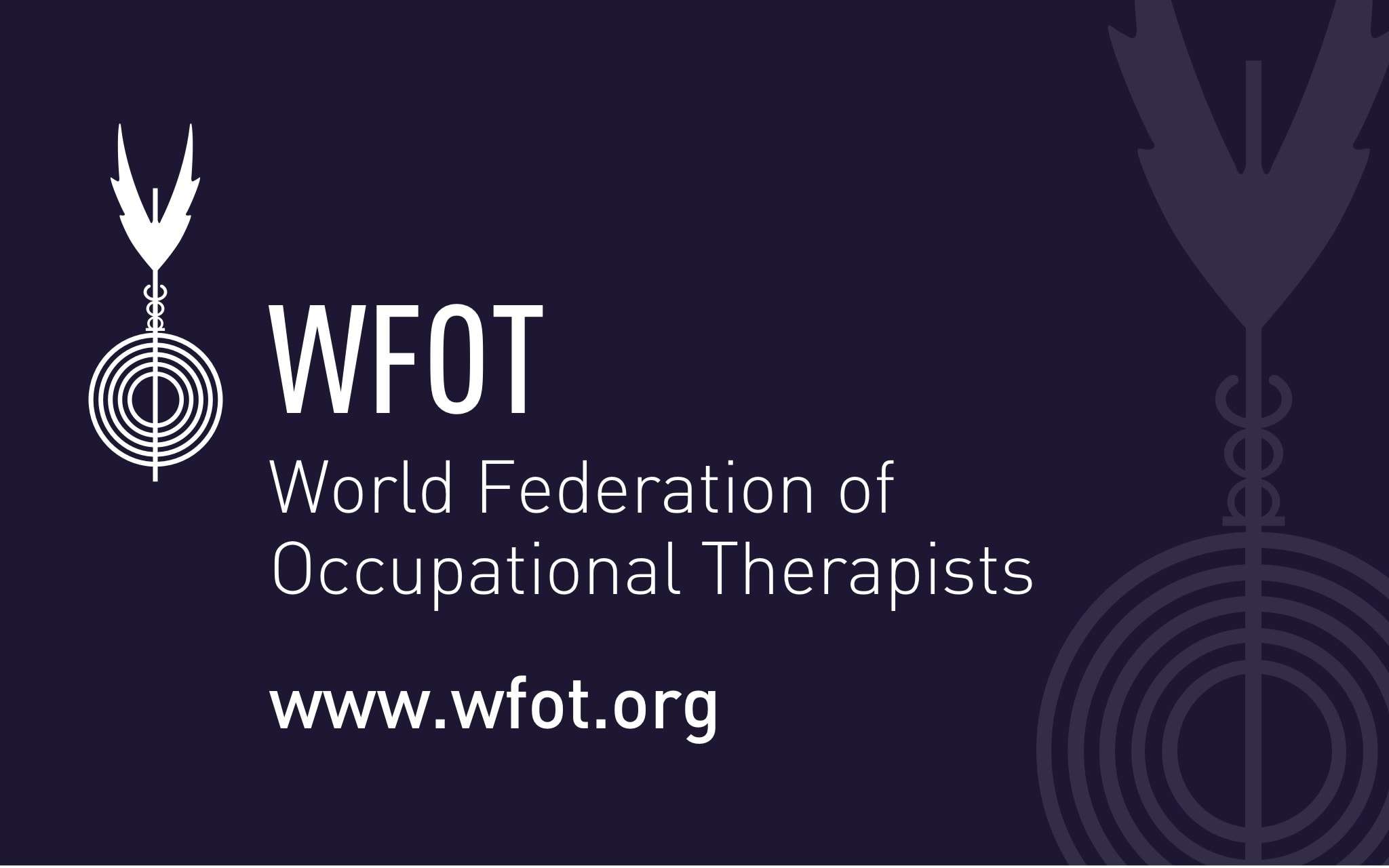How to Become a Psychologist
Becoming a psychologist leads you on a path where you can help people manage life’s difficulties and better cope with their mental health problems. If you are interested in psychology as a profession, you generally need a doctoral degree—either a PhD, PsyD or EdS—in the field. But a number of states do allow individuals to get a psychology license with a master’s degree.
After receiving an undergraduate degree in any subject and a graduate degree in psychology, psychologists will complete an internship or postdoctoral training period that lasts at least one year. It is important to note that any individual with an undergraduate degree can apply for a master’s in psychology. Once they receive their license and meet the state requirements or additional specialization credentials, psychologists can provide counseling and psychotherapy as well as testing and treatment for mental disorders. However, they are not medical doctors and cannot prescribe medications. Instead, psychologists work alongside medical doctors who provide those treatments.
Why Become a Psychologist
Psychologist Salaries
Finding an Accredited Psychology School
Different Psychology Degrees
Choosing a Psychology Career Track or Specialty
Psychology Licensure Requirements by State
FAQ
4 Steps to Becoming a Psychologist
There are four common steps to become a psychologist: earning a bachelor’s degree, obtaining an advanced psychology degree (i.e., a master’s, doctorate or both) from an accredited program, completing at least a one-year internship or postdoctoral program to gain experience working with patients, and obtaining a license, which includes passing a test on foundational knowledge. All together, the path to becoming a licensed psychologist can take up to eight years.
1. The first step to becoming a psychologist is to earn a bachelor’s degree.
It can be in any subject, but it may be worth considering a major that lends itself to a career in psychology, such as social work, psychology or sociology.
2. Earn a master’s and/or doctorate in psychology.
Depending on where you intend to practice and the specific concentration you are interested in (e.g., child psychology, social work, marriage and family therapy), you may be able to pursue a psychology license after earning a master’s degree, either a Master of Arts or a Master of Science. If you must pursue a doctoral degree, you will choose between a PsyD, a practical degree for would-be counselors; a PhD, which is more research-oriented; an EdD, or Doctor of Education; and an EdS, or education specialist. Check your state requirements and consider your career goals to determine which degree is right for you.


Earn an MA in Psychology Online from Pepperdine
Pepperdine University’s online Master of Arts in Psychology program prepares students to pursue doctoral study or a career in human services.
- Open to all undergrad majors
- No GRE required
- Can be completed in about 18 months
3. Complete an internship or postdoctoral program.
After you complete a psychology master’s or doctoral program, you must complete an internship or postdoctoral program. This required psychology internship gives you an opportunity to work alongside licensed psychologists to gain hands-on training in your field of interest. Most states require 1,500 to 2,000 hours of training and at least one to two years of supervised professional experience, according to the U.S. Bureau of Labor Statistics.
4. Obtain a psychology license.
The licensing requirements for psychologists vary per state. Contact your state board to understand your state’s requirements. Various state board information can be found at the Association of State and Provincial Psychology Boards (ASPPB) website. Once you’ve met the necessary education and professional requirements, you’ll need to pass the Examination for Professional Practice in Psychology, which is administered by the ASPPB.
Why Become a Psychologist?
A career as a psychologist is one in which you have direct impact on the mental health and well-being of others. There are many career options in the field of psychology that will allow you to pursue work that you find rewarding whether that is working with children, people with developmental disabilities or older adults, or focusing on research, assessments, teaching and systems design. In addition, job prospects for psychologists are strong, and the median salary was more than $81,040 in May 2021, as per the U.S. Bureau of Labor Statistics.
Where Do Psychologists Work?
Psychologists work in a variety of settings, including:
- Universities or four-year colleges
- Other schools (e.g., high schools, elementary schools)
- Medical schools
- Independent practices
- Hospitals or other health services
- Government or Veterans Association medical centers
- Businesses or nonprofits
Psychologist Salaries
The median pay for psychologists was $81,040 per year in 2021, according to the BLS. The lowest-paid psychologists made $47,850 or less while the highest-paid psychologists made more than $133,890. The best-paid psychologists are found in government with a median income of $103,850, followed by hospitals ($99,330) and ambulatory health care services ($83,770).
Psychology Career and Job Growth
The BLS indicates that the demand for psychologists is projected to grow 8% from 2020 to 2030. Schools, hospitals, social service agencies and mental health centers are all facing increasing need for counselors. Psychologists are also needed to help individuals cope with life and career transitions, provide services to people who are aging, and support veterans and other people who have experienced trauma. Schools also need more counselors to support student mental health and provide services to students with autism.
Finding an Accredited Psychology School
Psychology undergraduate and graduate programs are available online or in-person across the country. While the American Psychological Association (APA) only accredits doctoral programs, it does provide standards and guidelines for evaluating various psychology programs, which can be used to guide your decisions. To find an APA-accredited doctoral psychology program, as well as accredited internships and postdoctoral programs, you can search the APA online database.
Psychology Degrees and Studies Online
There are many online psychology programs. Some undergraduate degrees in psychology can be obtained through an online program at many colleges and universities. Advanced degree programs in psychology are also offered online.
There are a number of advantages to earning an online master’s degree in psychology. Students benefit from the same courses and instruction as their counterparts on campus without the time and expense of traveling, and they have access to online support and can follow online lessons at their own pace. Working professionals enjoy greater flexibility in pursuing their degrees, and for programs with a clinical requirement, those hours can typically be fulfilled close to where a student lives.
Different Psychology Degrees
Advanced degrees in psychology begin with a master’s degree in psychology, which can be concentrated in an area aligned with your career goals (e.g. industrial and organizational psychology, applied behavior analysis, and marriage and family counseling). The master’s degree in psychology—either a Master of Arts or a Master of Science—may be followed by a doctoral degree. The four doctoral degrees for psychology include a Doctor of Psychology (PsyD), a Doctor of Education (EdD), an Education Specialist (EdS) and a Doctor of Philosophy (PhD).
Master’s Degree in Psychology
A Master of Arts (MA) in psychology is typically focused on theory, assessment and intervention and is geared toward students who want to become counselors, social workers and psychologists. A Master of Science (MS) degree in psychology places a greater emphasis on research and statistics. Even an online master’s degree in psychology may require some amount of in-person clinical coursework. Job opportunities for those with a master’s degree in psychology might include industrial–organizational psychologists, psychological assistants and more. A master’s degree in psychology typically takes two years to complete. Some states allow individuals with a master’s degree to obtain a license to practice as a psychologist, but it’s important to check each state’s requirements.
PhD in Psychology
A PhD in psychology is considered the most common advanced psychology degree and involves scientific research, including data collection and statistical information, as well as requiring a dissertation to show research knowledge. It can take five to seven years to complete a PhD in psychology. Career options for those with a PhD in psychology include business consultant, researcher, faculty member, health service administrator and counselor.
PsyD in Psychology
The Doctor of Psychology degree is designed for students more interested in providing counseling services than focusing on research. PsyD psychology programs focus more on clinical work than PhD programs, and the program takes four to six years to complete. Career options for those with a PsyD degree involve roles working directly with people in need as a counselor or therapist.
EdD in Psychology
The EdD in Psychology is a psychology degree granted by a college of education and allows students to develop skills and knowledge to improve outcomes in school systems. Career options for someone with an EdD psychology degree include education administrator, chief academic officer, survey researcher and community service manager.
EdS in Psychology
The Educational Specialist in School Psychology degree trains students in skills needed to work with children and families within school systems. You’ll learn skills like evidence-based interventions, consultation, assessment and evaluation. The program typically lasts three years.
Choosing a Psychology Career Track or Specialty
There are a wide variety of career paths available to those with a psychology degree—and these careers differ in terms of the degree they require (e.g., MA vs. PhD), the clientele they serve (e.g., children and families vs. healthcare professionals) and the kind of work they do (e.g., primarily research vs. primarily practitioners). Interest in a particular field or concentration can help guide your psychology degree considerations. The range of psychology specialties include clinical psychologists, community psychologists, counseling psychologists, developmental psychologists, environmental psychologists, forensic psychologists, health psychologists, rehabilitation psychologists, school psychologists and social psychologists.
Counseling vs. Clinical Psychology
Counseling psychologists work with people of all ages to help them recognize their strengths and abilities to cope with stress and adversity. They work in many settings, including college counseling centers, academic teaching roles, independent practice, health care settings and hospitals.
Both counseling and clinical psychologists use psychotherapy to treat patients, but counseling psychologists focus more broadly on well-being across a person’s lifespan. Clinical psychologists are more focused on clients who have mental illness by assessing and treating mental, emotional and behavioral disorders for people of all ages.
What Education Is Needed to Become a Counseling Psychologist?
To become a counseling psychologist requires a doctoral degree which takes four to six years to complete beyond the bachelor’s and master’s degrees. Programs of study for counseling psychologists focus on core psychology courses and specialized instruction, such as theories of counseling and human lifespan development. Part of the counseling psychologist degree program will include an internship that provides hands-on counseling experience with a licensed professional.
What Education Is Needed to Become a Clinical Psychologist?
To become a clinical psychologist, you’ll need a doctoral-level degree, either a PhD or a PsyD. Most clinical psychologist doctoral programs will require five to seven years of study to complete beyond the bachelor’s and master’s degrees. There are many specialty areas within the field that can serve as a focus for your studies, including mental, emotional and behavioral disorders.
Non-Psychology Counseling Career Paths
A number of counseling careers do not require a psychology degree. These include becoming a career counselor who helps people to reach their career goals and requires a master’s in counseling and an internship experience, and a substance abuse counselor who helps clients develop the skills to recover from addiction, a career that requires a master’s in substance abuse/addiction counseling and internship.
Licensed Social Workers
A licensed social worker helps provide services to underprivileged communities and works within school systems, nonprofits and health care systems. Becoming a licensed social worker requires a bachelor’s degree in a related field and a master’s degree in social work.
Marriage and Family Therapy
Marriage and family therapists help couples, families and individuals who need solve interpersonal problems, using psychotherapy to improve clients’ relationships, coping mechanisms and overall well-being. Becoming a marriage and family therapist typically requires a master’s degree in marriage and family therapy and 2,000–4,000 approved clinical hours in order to obtain a license.
Psychologist vs. Psychiatrist
Psychologists and psychiatrists both treat patients with mental health issues using psychotherapy. But psychiatrists are Doctors of Medicine (MDs) who must complete medical school because psychiatry is considered a physician specialty. Typically, MDs will complete an internship prior to residency and before they enter the real world to practice as a psychiatrist. Psychiatrists can prescribe medication to patients. Psychologists generally must complete a doctoral degree and one to two years of an internship before practicing and do not typically prescribe drugs but work alongside other health professionals who do.
School Psychologist
School psychologists provide counseling to school children and also consult with staff and parents to guide children and adolescents’ positive mental, emotional and behavioral development. Although a school psychologist and school counselor are similar in their education requirements, there are distinct differences between the two careers. To become a school psychologist requires a bachelor’s and master’s degree and an accredited graduate program to earn a PhD or EdS. You’ll also need to complete at least 1,200 hours gaining hands-on experience at a supervised internship.
Psychoanalysts
Psychoanalysts are like psychologists in that they use psychotherapy to treat patients and do not prescribe medications. Founded by Sigmund Freud, the definition of psychoanalysis is “a method of analyzing psychic phenomena and treating emotional disorders that involves treatment sessions during which the patient is encouraged to talk freely about personal experiences and especially about early childhood and dreams.” The term “psychoanalyst” is not protected by state or federal law, but there are institutes offering credentials that are accredited through the American Psychoanalytic Association.
Developmental Psychologist
Developmental psychologists study how people grow and develop throughout life. This career is increasingly moving toward a focus on childhood and adolescence to working with older adults in staying mentally active into their later years. They work in research and teaching in academic settings and also on assessment, evaluation and treatment in health care and nursing home facilities. To become a developmental psychologist, you must earn a doctoral degree.
Behavioral Analysts
Behavioral analysts work with people to understand and improve behaviors using applied behavior analysis, which can be applied to individuals and organizations. Specialty behavior analysis areas include pediatrics, autism, gerontology, education and sports. You can become a behavior analyst with an online master’s degree in Applied Behavior Analysis (ABA) followed by a graduate-level Board Certified Behavior Analyst (BCBA) certification.
Environmental Psychologist
Environmental psychologists study the way human behavior intersects with a person’s environment, both on a personal level (social groups) and more broadly (within a person’s culture, city and the planet at large). They study how various environments—urban, suburban, rural—and major environmental issues, such as climate change, affect behavior and human well-being and help in planning environments that encourage positive growth. To become an environmental psychologist, you must earn a doctoral degree.
Psychology Licensure Requirements by State
Licensure requirements for psychologists includes meeting specific standards in three key areas: education, examination and supervised experience. Most states require a doctoral degree in psychology to receive a license but about half have a category that allows someone to practice psychology with a master’s degree (often called a psychological associate) if they are under the supervision of a doctorate-level licensed psychologist, according to the Association of State and Provincial Psychology Boards. Most U.S. states require you to pass the Examination for Professional Practice in Psychology (EPPP) in order to be a licensed psychologist. Find out what your state requirements are by contacting your preferred school’s office of admissions. Others require a jurisprudence examination and/or an oral exam in addition to the EPPP. In order to receive a license, it is almost always required that you have successfully completed at least a one-year internship and at least a one-year postdoctoral program. To better understand a specific state’s licensing requirements for psychologists, consult the PSYBook from the Association of State and Provincial Psychology Boards.


Earn an MA in Psychology Online from Pepperdine
Pepperdine University’s online Master of Arts in Psychology program prepares students to pursue doctoral study or a career in human services.
- Open to all undergrad majors
- No GRE required
- Can be completed in about 18 months
FAQs
How long does it take to become a psychologist?
To become a psychologist with a master’s degree requires four years of an undergraduate degree and another two years to complete a master’s degree. To become a psychologist with a doctorate degree, which is typically necessary to receive a license, requires an additional four to six years beyond the master’s for a PsyD or an additional five to seven years beyond the master’s for a PhD.
What courses are required to earn a master’s degree in psychology?
Courses needed for a master’s degree in psychology include theoretical psychology, developmental psychology, ethics and psychology, research, and communication.
What courses are required to earn a doctoral degree in psychology?
Courses needed for a doctoral degree in psychology might include psychopathology, developmental disabilities, basic emotional processes, prevention and intervention, and quantitative analysis.
What are the best undergraduate majors for psychologists?
Undergraduate majors that lend themselves well to higher psychology degrees and specialized pursuits of study within psychology include psychology, biology, neuroscience, education, social work and sociology.
Which states have the most licensed psychologists?
California (16,900), New York (13,470) and Massachusetts (5,660) are the states with the most licensed psychologists. The states with the fewest licensed psychologists are South Dakota (160), Wyoming (170) and Alaska (170).
Last Updated April 2022



